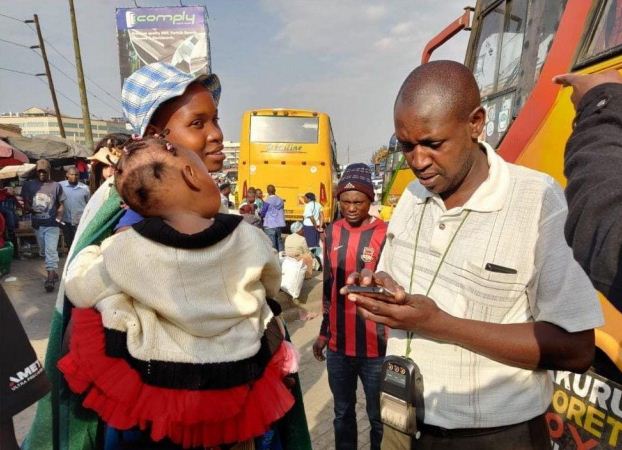In the first half of 2022, the logistics and mobility sector accounted for 11.4% of the total funds raised by African startups, making it the second-highest after FinTech startups. If this is anything to go by, Africa’s mobility sector is experiencing a boom like never before.
At the granular level, mobility companies solve key challenges in the transportation value chain by offering proprietary technology, which makes mobility a service of convenience and choice.
From SWVL in Egypt to Moove in Nigeria and SafeBoda in Uganda, we’ve seen innovative trends centring around ease of access through e-hailing, credit facilitation to driverpartners, inter/intra-city ride-sharing, digital infrastructure for operators and overall convenience for users.
Yet, with the proliferation of ride-hailing and logistics services that attempt to solve these key issues, mobility companies have yet to scratch the surface. A plethora of other challenges exist that hinder the mobility landscape from reaching its true potential; urban congestion, insufficient data on routes, unregulated public transit agencies and most importantly, unavailability of robust end-to-end digital infrastructure management for operators.
“Everyday over 30 million people in Sub-Saharan Africa (SSA) travel from one city to another and over 40B dollars are spent every year on domestic travel and transport.” says Wyclife Omondi, Cofounder of BuuPass “However the market is hyper fragmented and broken. This means: A single intercity bus operator with an average of 30 buses and 20 bus stops has its operator using pen and paper to manage their operations, hence causing cash leakage and a bad customer experience.”
Founded in 2016, BuuPass provides a holistic solution to both operators and end users in the mobility ecosystem. Its web platform enables long-distance transport operators to digitise and manage their services, inventory and sales, minimise cash leakages, and run seamless online bookings through its Bus Management System (BMS). It also offers affordable parcel logistics for individuals and businesses that are cost sensitive to high prices from current logistics & shipping providers. On BuuPass, travellers are able to explore and compare different travel options and make payments with mobile money.
Armed with the mission to bridge the gap between the operators and 500m+ mobile phone users in Sub-Saharan Africa, founders Wyclife Omondi and Sonia Kabra, say “BuuPass solves key customer pain points on B2B and B2C side while building scalable infrastructure and digitizing the transport industry from the grassroots. Yet, digitising mobility across Africa wouldn’t be a walk in the park, given the continent’s regional complexities.”
What does it take to truly digitise mobility in Africa?
According to the International Transport Forum (2018) Blockchain and Beyond, held in Paris, three major layers are required to bolster the digitisation of mobility – operators, IT providers and mobility service providers.
Transportation operators
Although transit agencies are a core part of the mobility value chain, travelers often face cost ordeals and tedious booking processes. “It takes travelers unnecessary time and money to compare platforms while trying to book tickets. With BuuPass digitalisation, both challenges are taken care of because we do not only cut costs for users or commuters, we also reduce administrative overhead for bus operators by offering a fleet and parcel management solution,” says Omondi
IT (data and communication) service providers
According to the OECD report, physical ICT infrastructures such as wireless networks and cables are important for essential information dissemination, from schedules, destinations, and fares. Application Programming Interface (API) also helps to determine the communication methods that allow public retrieval. To deliver on its value proposition, BuuPass has partnered with Safaricom, East Africa’s largest mobile network operator, to provide hosting, security and flexible digital payments through M-Pesa.
Mobility service providers
As a mobility service provider, BuuPass aggregates key information, ranging from data, including location, time, and price, relevant for travellers and authorities to execute regulatory functions.
With over 1,000,000 bus users, more than 920buses in operation and 800+ locations covered in Kenya and Uganda, BuuPass’ all-in-one platform is demonstrating its capacity to alleviate the hurdles of transport operators and at the same time facilitate the convenience of commuters.
Currently, the platform processes over 10,000 bookings daily and looks to quadruple this number in Q1, 2023. “While the race to digitise mobility in Africa is far from over, BuuPass is one of the few solution providers attempting to ensure everyone in the value chain is catered to, one pan-African country at a time. We are different because we have something for everyone in the value chain – operators, commuters, and regulators. We are ensuring that no one is left behind.” says Kabra
BuuPass is Kenya’s market leader offering online bus booking, enabling travellers to reserve seats and make payments in a convenient and timely way. The venture-backed startup through its all-in-one web and API solutions caters to both transport operators and travellers across Africa.
Users are able to book their trips, compare prices for bus, train, and flight routes available between the two destinations and explore the cheapest, fastest, and recommended prices. BuuPass aims to become a go-to platform that can truly digitise mobility in sub-Saharan Africa.








